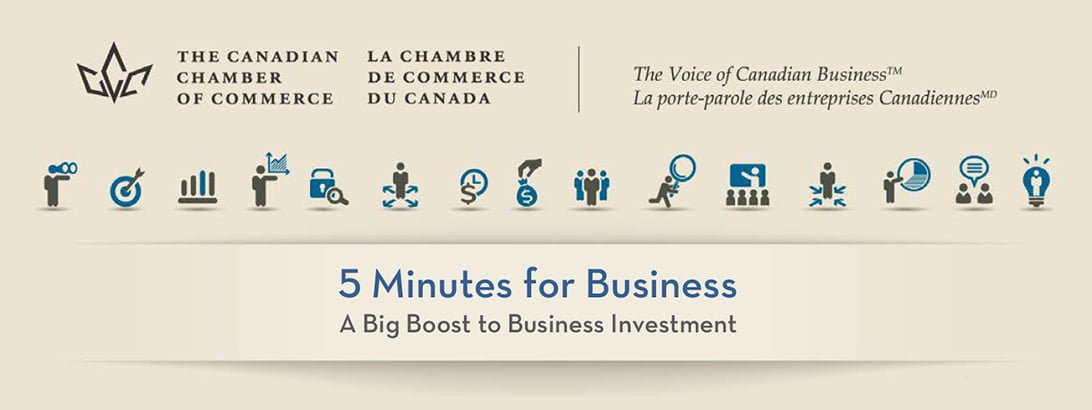5 Minutes for Business
By: Susanna Cluff-Clyburne, Director of Parliamentary Affairs, The Canadian Chamber of Commerce
Canada’s businesses are optimistic about increasing investments this year, but there is a big barrier that needs to be addressed.
Before any development project, such as a mine or road can begin, the Crown has a constitutional duty to consult with and accommodate Indigenous peoples whose rights could be affected. Governments often rely on industry to do these consultations as part of the regulatory approval process. But there is often no guidance on how business should engage with Indigenous communities, or what constitutes appropriate consultations. As one business person from Saskatoon told us, “There’s expectation but no direction from the government. If your project is shut down, it’s your own fault.”
This lack of clarity can result in nasty surprises for companies and Indigenous peoples who believe they have done all they can and should do within the process. This often happens when the Crown intervenes late in its engagement to impose new obligations or when it fails to executive its duty effectively at all. This can lead not only to the delay or cancellation of private sector projects but to companies abandoning them altogether. This is unfortunate because most projects have the potential to provide long-term economic and social benefits to Indigenous communities and all Canadians, including education and training, infrastructure, employment, the creation of new Indigenous businesses, improved health care resources and housing as well as the means to sustain cultural priorities.
Canada’s businesses see real opportunities in the government’s efforts to restore a nation-to-nation relationship with Indigenous peoples – modernizing the National Energy Board (NEB) and reviewing all federal laws and policies affecting Indigenous peoples.
Last September, we released Seizing Six Opportunities for More Clarity in the Duty to Consult and Accommodate Process. The report was driven by businesses’ concerns that the lack of clarity on the Crown’s execution of its duty is frustrating relationships with Indigenous communities and stopping projects from which both could benefit.
We need a consistent framework that brings Indigenous communities and business together to establish a relationship when one doesn’t exist already. Once discussions regarding a project begin, the Crown should clarify such issues as what has triggered the duty, which Indigenous peoples are affected and their rights, its involvement, what information needs to be provided, timelines, and how it will follow up to determine if the process met its objectives and whether those involved met the expectations of them.
There are real consequences for business and Indigenous communities when the Crown fails to execute its duty. In 2016, a Federal Court of Appeal upheld an appeal blocking the Northern Gateway pipeline because the Crown “offered only a brief, hurried and inadequate consultation with First Nations.” Most of the time, the process works well. When it doesn’t, there needs to be repercussions for officials as well.
Unless we fix this process, our competitors will dismiss us and get what they need elsewhere, leaving behind businesses, Indigenous communities and all Canadians.
For more information, please contact:
Susanna Cluff-Clyburne Director, Parliamentary Affairs
613.238.4000 (284)
scluff-clyburne@chamber.ca



